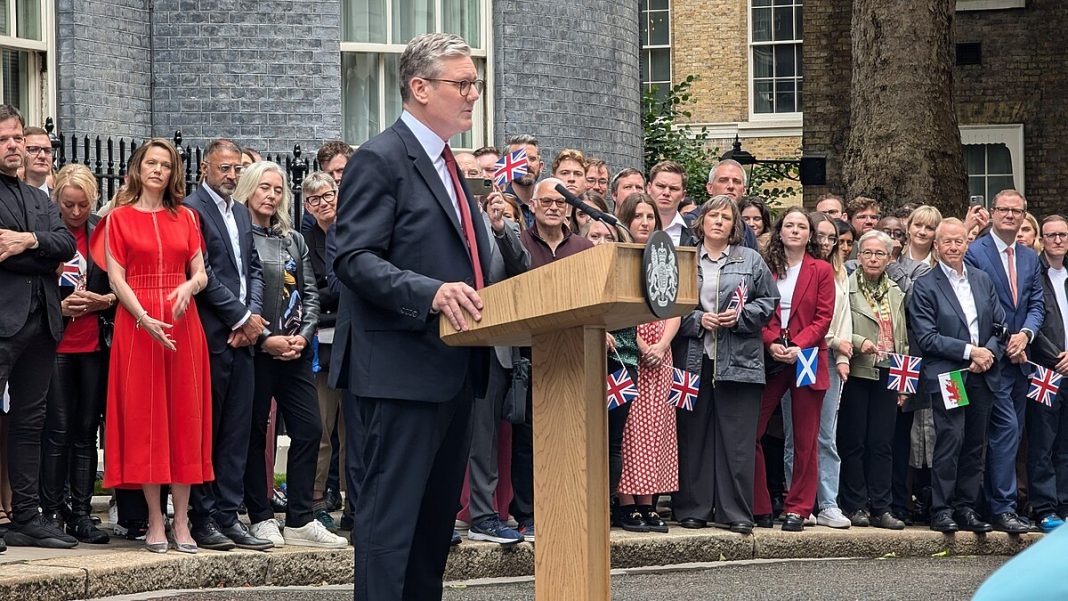I was lucky enough to spend the night of the 4th of July in a bustling sports hall in Abingdon, working as a stringer for ITV for this year’s general election. For me – and for most current university students – this election was our first opportunity to vote. It also happened to be a historic election, with the Conservative vote collapsing, dropping to their lowest number of seats since their formation in 1834. Despite this, there are questions around how representative the new government is, for young people as well as the population as a whole.
Make no mistake. The general election’s results, despite the headline figure of seats, were not (largely) a ringing endorsement of Sir Keir Starmer’s Labour party. His vote share is up just 1.6% on 2019, when Labour experienced their worst result in seats since 1935. Apart from in Scotland, where a languid SNP’s vote also collapsed, the increase in Labour’s vote share is largely insignificant. Starmer has won a smaller proportion of the popular vote than Jeremy Corbyn did in 2017.
More concerningly, turnout looks to be down to record low levels. In 2019, turnout was 67.3%. This time around, turnout was around 60%, at its second lowest level since 1885. Such a collapse in tangible engagement with politics is dangerous for democracy and an alarm bell signifying widespread disillusionment, especially around Labour and the Conservatives, whose joint vote share is its lowest since 1923.
Apathy is particularly high among young people, 44% of whom were not expected to vote in this year’s election. The youth turnout is invariably lower than that of older cohorts, but this time around a lack of inspiring policy from mainstream parties as a result of tight economic constraints is likely to have contributed to young people staying at home. One of the new Labour government’s biggest challenges will be following through with Keir Starmer’s promise to return politics to the ‘service of the people’ given that more people than ever are represented by MPs they did not vote for.
Despite all this, it is difficult to not credit Starmer with what is an incredible achievement. He will have the fourth largest majority in parliament ever, in the first election since Labour’s disastrous performance in 2019. He becomes just the fourth Labour leader to guide the party to a majority from opposition. As Starmer says, he has turned around the fortunes of his party, and in doing so has won them an election for the first time in 19 years.
Starmer’s policies, though, are likely to be responsible but unpopular. Strategies like the gamble on growth will take years to see rewards (if they do at all), and there is already talk of Starmer needing at least two terms to deliver on his goals. The goal of building 1.5 million new houses, for example, will take time given it will first require the shredding of existing planning laws and extensive consultations about where ‘new towns’ will be built. If Labour fails to make significant progress over the next five years, they will be forced to accept advances by Reform UK, whose populist rhetoric thrives under widening inequality and worsening standards of living, and a Conservative Party likely to drive itself further into the extremes while in opposition.
In Abingdon, while trying to elicit hints about who might win the constituency I had been assigned to, I got talking to some of the Green Party volunteers. They were incredibly concerned about the mounting stacks of ballot papers being placed into the baskets for the Reform candidate. Indeed, the rise of Reform when compared with that of the Greens is particularly telling. It has taken the Green Party, in its various forms, around fifty years to win four seats, considered an achievement for them this time around. It has taken Reform in its current form one election to gain over double the vote share that the Greens managed.
This says something about the general shift of politics in the country. While the mainstream right in the Conservatives has struggled, the Labour Party has shifted to the centre, Reform has risen, and, some argue, the largest truly ‘left-wing’ party now seems to be the Liberal Democrats. There is much to be concerned about for those who see themselves as progressives.The Greens will want to build on their results, having come second in 39 seats, but as of now seem consigned to the fringes of parliament.
More important for many of us, though, is the concern of how heard young people will feel in the years to come. With more young people than ever switching to the Green Party, showing signs that they don’t feel represented by Labour, it will be important for the incoming government to show that they do take priorities like housing and the environment seriously if they wish to win them back. It is also vital that our politicians tackle the brutal apathy of many young people towards politics generally, and reverse decades of declining voter turnout at source. Such a reversal can only happen through taking the priorities of young voters seriously, and showing them that politics can make a positive difference.


